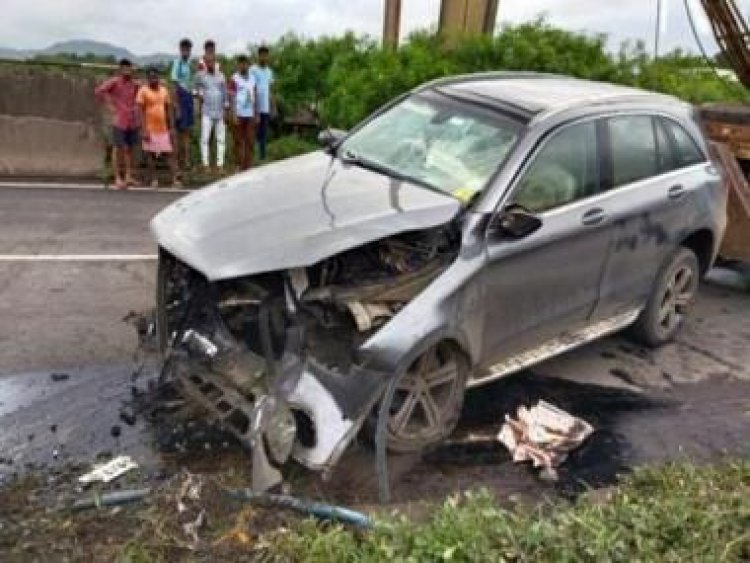Cyrus Mistry’s death: Why wearing seat belts is important and what the law says on it
Cyrus Mistry’s death: Why wearing seat belts is important and what the law says on it

‘Buckle up every time’ — this famous slogan encouraging the use of seat belts has become the focal point after the tragic demise of 54-year-old Cyrus Mistry, the former Tata Sons chairman and younger son of the man behind the real estate giant Shapoorji Pallonji Group.
According to the police, Mistry and co-passenger Jahangir Pandole, who died in the crash, were sitting in the back of a Mercedes car and not wearing their seat belts at the time of the accident.
The other two passengers — Dr Anahita Pandole and her husband Darius — who were in the front are seriously injured and have been shifted to a hospital in Mumbai after they were stabilised at a facility in Gujarat’s Vapi town.
A police official added that the preliminary probe revealed that the luxury car was speeding when the accident took place on Sunday afternoon.
*****
From Cyrus Mistry to Princess Diana: Road accident deaths that shook the world
Explained: Who will lead the $30-billion Shapoorji Pallonji group after Cyrus Mistry’s death?
*****
The Mercedes car covered a distance of 20 km in just nine minutes after crossing the Charoti check post in Maharashtra’s Palghar district, 120 km away from Mumbai, the official said on Sunday night.
The car hit a road divider on a bridge over the Surya river, killing Mistry (54) and Jahangir Pandole on the spot.
Importance of seat belts
Data published by National Crime Records Bureau has revealed that road accidents claimed the lives of 1.55 lakh people across India in 2021 — an average of 426 lives or 18 lives every hour. This is the highest death figures recorded in any calendar year so far. Besides, 3.71 lakh people were also injured in 4.03 lakh road accidents across the country last year.
These figures put the spotlight on the use of seat belts and the apathetic attitude of their use in India.
According to a World Health Organization (WHO) report in June, seat belts can reduce death and serious injuries to passengers in the rear seat of a car by 25 per cent.
“Wearing a seatbelt reduces the risk of death among drivers and front seat occupants by 45 – 50 per cent, and the risk of death and serious injuries among rear seat occupants by 25 per cent,” the WHO report had stated.
Highly-reputed Insurance Institute for Highway Safety has in a video also explained the importance of rear seat passengers wearing a seat belt.
In the event of a crash, a rear passenger without a seat belt may be pushed forward with severe force and can cause injury or fatality to the front occupant as well. This phenomenon is clearly demonstrated by the crash test dummies in the video. If not wearing seat belt, a passenger will be prone to hit hard surfaces even toss out of a speeding car if a door opens leading to life regrettable injuries.
According to the institute, 90 per cent of the people don’t wear a safety belt across the globe, especially when travelling by taxi or ride-sharing service.
IIHS senior research engineer Jessica Jermakian, stated that for most adults, riding in the back seat is far safer than at the front, if only they are buckled up.
In 2019, a research conducted by Nissan India and SaveLIFE Foundation had found that only seven per cent of rear-seat passengers wear seat belts across 11 major Indian cities. Eighty-one per cent of them know that rear-seat belts exist, but choose not to wear them, not realising that this basic safety measure can turn out to be a life-saver in case of an accident.
Law on seat belts in India
It is interesting to note that seat belts for rear-seat passengers is compulsory in India.
As per the Central Motor Vehicle Rules (CMVR), all passengers occupying front-facing seats, whether in the front or rear, are required to wear seat belts.
In Chapter VI, Control of Traffic of the CMVR, Rule 138, clause 3 states, “It shall be ensured that the driver, and the person seated in the front seat or the persons occupying front facing rear seats, as the case may be, wear the seat belts while the vehicle is in motion.”
According to the law, driving without a seat belt can now attract a fine up to Rs 1,000 which was earlier only Rs 100. Along with this, the traffic police can also seize the vehicle or cease the driving licence. However, the penalty may vary from one state to another.
However, passengers in rear seats, across India, generally do not wear seat belts.
With inputs from agencies
Read all the Latest News, Trending News, Cricket News, Bollywood News,
India News and Entertainment News here. Follow us on Facebook, Twitter and Instagram.
What's Your Reaction?


























































